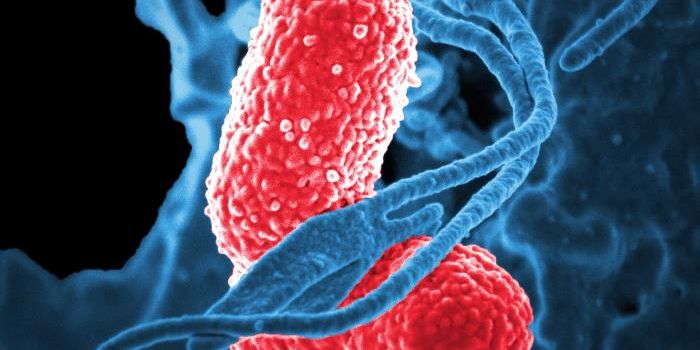The size of cells can vary widely from one species to another; the cells of phytoplankton are about one micron while frog oocytes can reach one millimeter. Even within one organism, there can be huge differences; human neurons can be huge compared to red blood cells, for example. But most specific cell types have to maintain a particular size, which ensures that they function efficiently. For example, blood cells have to be really small so they can fit into capillaries, while neurons may have to link distant regions, like the brain and peripheral organs. Thus, it's important for cells to control their size, which is linked to the regulation of growth and division.
Aged cells that have stopped dividing, called senescent cells, are known to get larger. When cells divide, they may pick up mutations in their DNA. Those mutations can be identified and repaired by the cell, but that process interrupts division and delays it, during which time cells have been observed getting bigger. MIT researchers wanted to know if this was linked to a decline in cell function. They have now learned more about how and why blood stem cells remain so small. The findings have been reported in Science Advances.
In this study, if the investigators caused DNA damage in blood stem cells, they found that the cells got larger and lost their normal function, which is to replenish red blood cells in a process called hematopoiesis.. If that genetic damage was induced but the blood stem cells were also prevented from getting larger with a chemical, the small, but damaged cells could still function normally, and they were able to generate new blood cells unlike cells that had gotten larger.
In another set of experiments, a mutation was introduced that made the blood stem cells too big. Those cells stopped performing normally. But they weren't worn out; when the mutation was corrected, the cells returned to their normal size, and they began to behave normally again.
“This is striking evidence supporting the model that size is important for functionality of stem cells,” said lead study author Jette Lengefeld, PhD, a former MIT postdoc now at the University of Helsinki. “When we damage the stem cells’ DNA but keep them small during the damage, they retain their functionality. And if we reduce the size of large stem cells, we can restore their function.”
Blood stem cells also seem to get bigger as they grow older, which helps explain why they begin to decline as they age. Cellular enlargement is a part of aging, the researchers suggested, and it may be possible to delay the onset of diseases that are related to aging by targeting cell size.
In a mouse model, the researchers used a chemical to prevent the blood stem cells from getting larger. The cells stayed small even in mice that were three years old, and continued to function normally as young stem cells would. That chemical, called rapamycin, could have beneficial effects in people, suggested Lengefeld.
“If we find drugs that are specific in making large blood stem cells smaller again, we can test whether this improves the health of people who suffer from problems with their blood system, like anemia and a reduced immune system, or maybe even help people with leukemia,” she added.
This work was confirmed in a intestinal organoid model; old stem cells were less able to grow functional organoids compared to young stem cells.
“That suggested that this relationship between cell size and function is conserved in stem cells, and that cellular size is a marker of stem cell function,” Lengefeld said.
Sources: Massachusetts Institute of Technology, Science Advances
-
MAY 07, 2024Is It Anti-RNP or Anti-Sm/RNP?
- See More
-
APR 30, 2024Immuno-Oncology Virtual Event Series 2024
-
MAY 07, 20243rd International Biosecurity Virtual Symposium
-
JUN 06, 2024The Future of Scientific Conferencing
- See More


















































